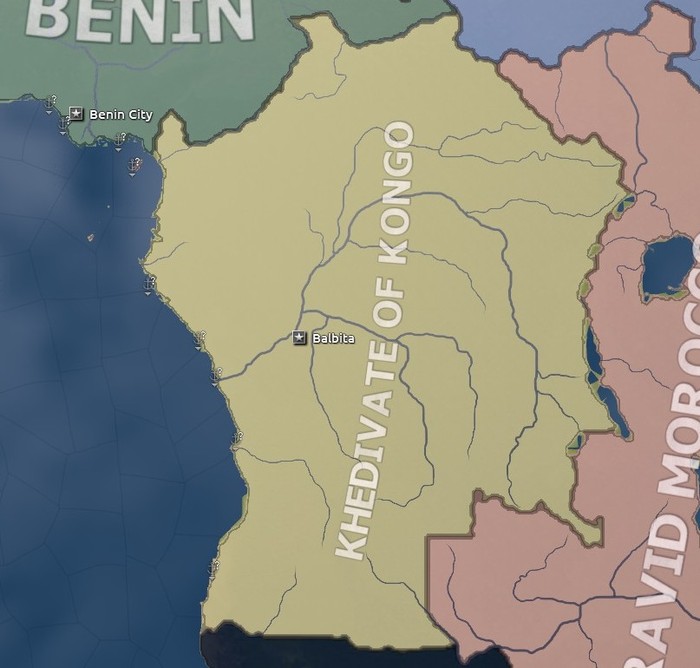Part 109: Red Star Rising
Chapter 4 — Red Star Rising — November 1937 to May 1938Supreme Leader Mizanur’s rise to power had been meteoric, and now that he had the unflinching support of the masses, he could begin working towards his ambitions.
Mizanur dreamed of a continent united under Qadis, and the primary obstacle to that vision stood in fascism, in the Commandant, in the Frankish Realm. So in the dying weeks of 1937, the Supreme Leader instructed his propaganda minister to begin drumming up support for a war against the Franks.
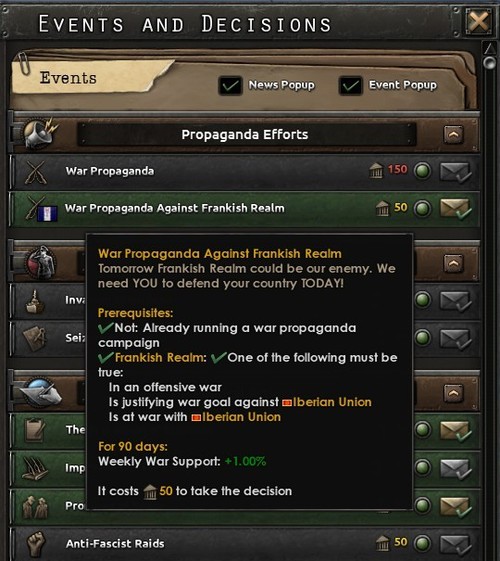
Of course, there were few in the Shura who actually wanted a war with the Franks, not when they were outnumbered and outclassed by their perennial enemy. Mizanur refused to compromise, however, leave the dissidents to form a faction in opposition to his warmongering plans…

Mizanur, needless to say, wouldn’t let this stand. With his authorisation, Al-Wazarat Umruun al-Dakhiliya — also called WUDA, or the Ministry of Internal Affairs, was expanded in scope and granted legal enforcement powers with the aim of reining in any “party renegades and traitors of the revolution”.

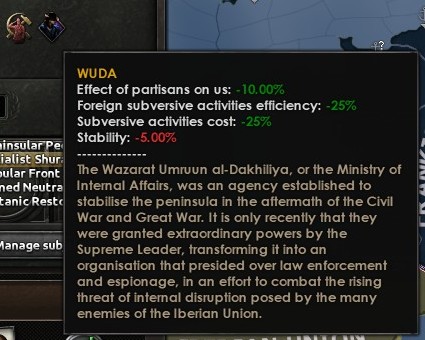
And with his secret police force immediately put to work, Mizanur could shift his attention to the military, with the Supreme Leader appointing Mirza al-Din and Zafir al-Qudsi to the high command as Chief of the Red Army and Red Airforce respectively.


Conflict had been lingering on the horizon for years now, and though the Iberian Union had managed to avoid another full-fledged war, their communist brethren were struggling with conflicts of their own in the west, north and east.
First and foremost, in the vast western continents of Gharbia, the Ibrizi War had just erupted in earnest.

The communists had made good progress in the early months of the war, driving the religious fanatics northwards in a ferocious offensive, an offensive that took a sharp turn for the worst when the enemy broke through their overextended lines, captured hundreds of southern soldiers and surrounded thousands more.

Needless to say, the Supreme Leader of the People’s Republic was eager for any assistance, especially when Moroccan volunteers joined the fight under Islamic banners. Mizanur thus dispatched another three divisions to aid the communist cause, with the expeditionary force arriving that same month and rushing to the relief of their trapped allies.

At the same time, the German Civil War had been raging for over a year in the north, with the Socialist Republic of Germany gradually gaining ground on her enemies. The decisive breakthrough was finally achieved in the dying days of 1937, when the Iberian expeditionary force led the charge into Hanover, forcing the last stragglers to throw down their arms and surrender their capital.


The fall of Hanover was a devastating blow to the liberal cause, but the republicans refused to capitulate, determined to continue the struggle from Kiel. So after a brief respite, the Iberians and Germans flooded northwards on a renewed offensive, determined to reach the Baltic coast by the spring equinox.

Back in Iberia, meanwhile, the propaganda campaign to stir war support was met with resounding success. Film reels denouncing Moroccan aggression and condemning Frankish policies were televised across the peninsula, along with short snippets of Mizanur himself, pledging to liberate the masses suffering under the brutal, oppressive regimes of Paris and Marrakesh.
And all the while, the military high command were occupied with charting their war plans. For the southern front, it was obvious that Qadis wouldn’t be able to challenge for control of the Straits, with Iberian marshals instead devising methods of circumventing the waterway altogether…

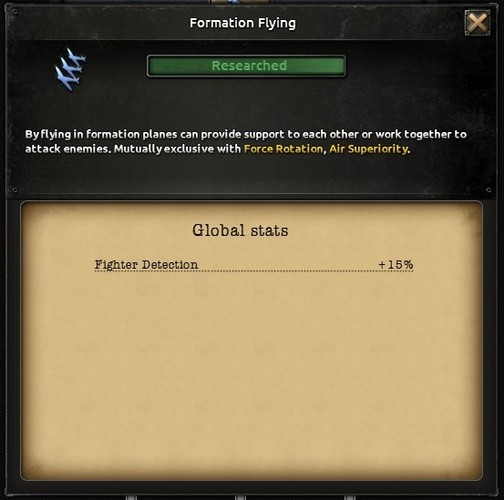
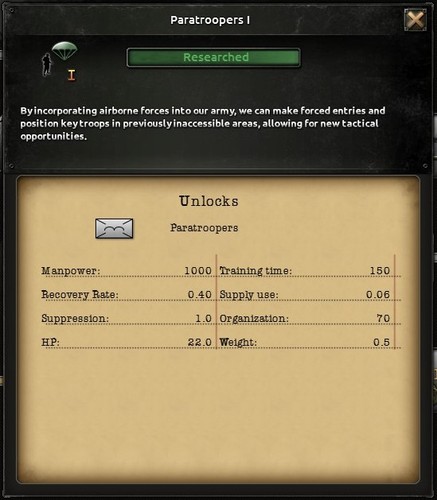
As for the northern front, the strategy there revolved around holding the Pyrenees, with the long line of admittedly-derelict fortresses still capable of repelling the Franks, or so the Supreme Leader insisted. In addition to that, the front was being gradually reinforced with newly-trained divisions, with some 30 divisions manning the mountains by the summer of 1938.
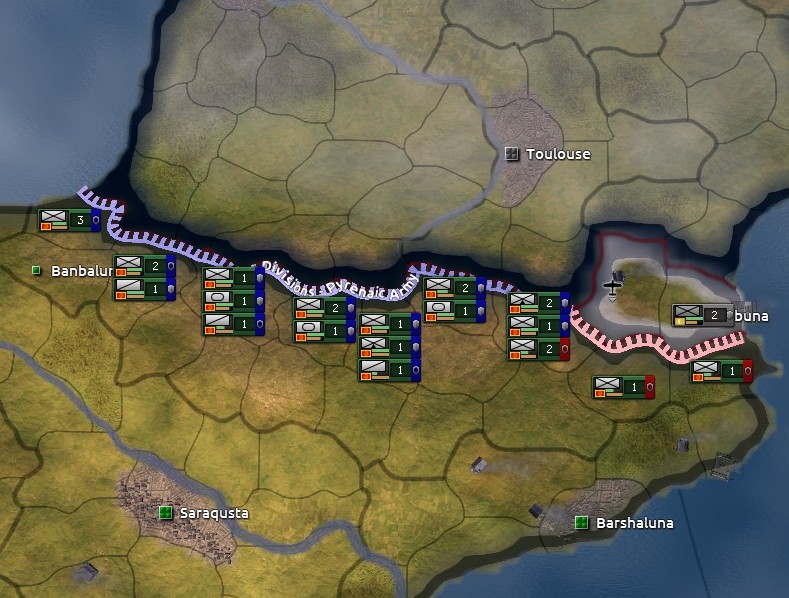
With that said, however, Iberia wouldn’t stand half a chance if caught in a two-front war. Allies were needed, and so the Supreme Leader reached out to the People’s Republic of Provence, hoping to find a common cause against their shared neighbour in Francia.
His efforts would come to nothing, however, as the Provencal were determined to maintain their neutrality in the oncoming storm.
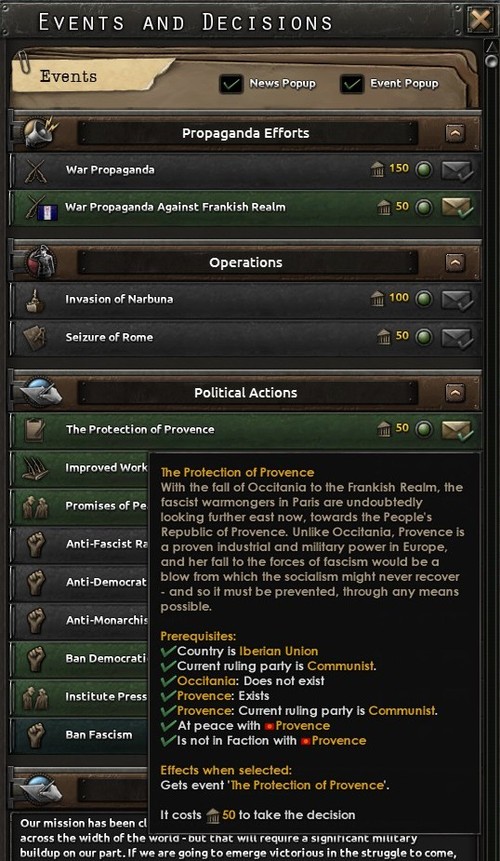
That would prove to be a costly mistake, however, as Marrakesh came calling just weeks later. On the 31st of January, 1938, the Grand Vizier of Morocco delivered an impromptu speech in which he declared Provencal Africa to be “crucial to the national security of the Sultanate”. At the same time, Moroccan tanks were surging across the border and seizing vast tracts of land, with the entirety of West Africa consolidated under Moroccan rule in the weeks that followed.
And the Provencal, toothless and friendless, could only concede defeat.
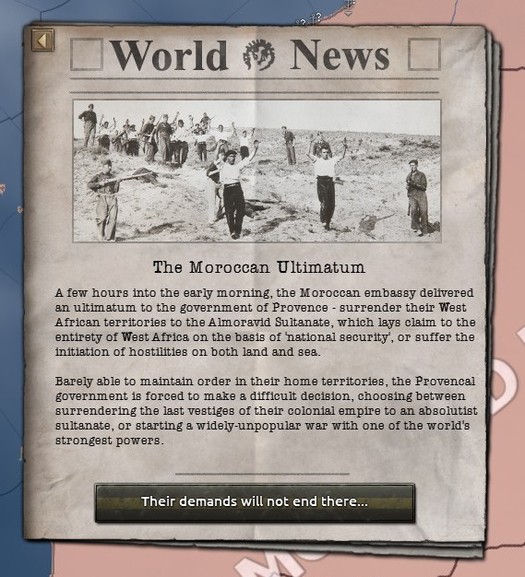
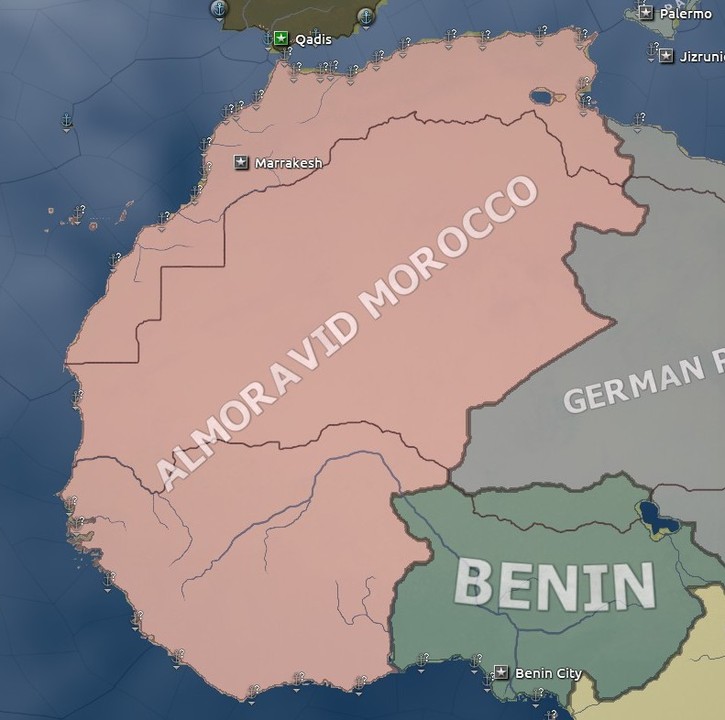
This was an opportunity, and Supreme Leader Mizanur pounced without hesitation. He offered the leader of Provence considerable support in the form of arms and manpower, along with assistance in industrial and military technology, in return for only two things — a defensive pact, and the isle of Corsica.
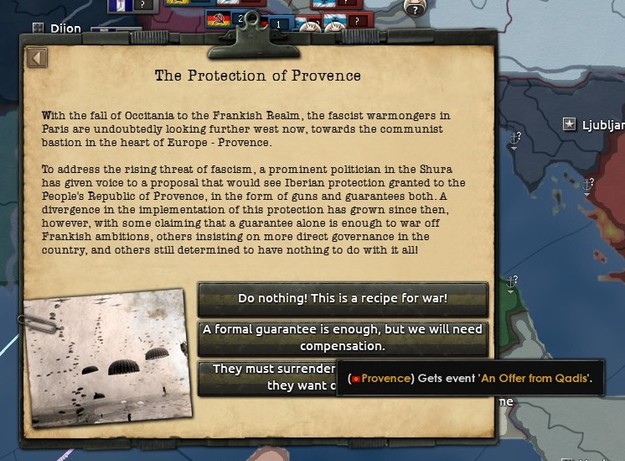
Already forced to surrender the last vestiges of their colonial empire, the Provencal were quick to accept his terms, with the withdrawal of Corsica and military alliance formalised within a scant few days.
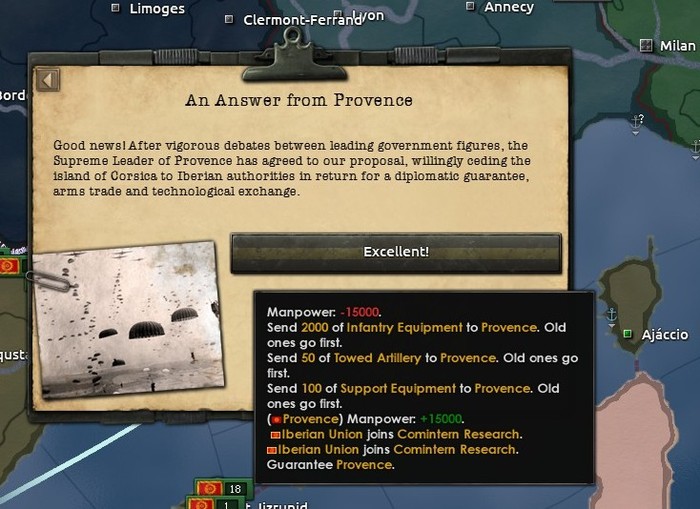
For the first time in decades, Iberian influence was on the rise, and the rest of the Great Powers weren’t happy about it. Mizanur refused to balk in the face of international pressure, however, with the Supreme Leader taking to the stands and defying the diktat of Prague in a speech that was broadcast across the peninsula.
No longer would enemy watchdogs hound them, no longer would Iberian industries be restricted, no longer would Iberian rearmament be hindered — at long last, the shackles of Prague were struck free.
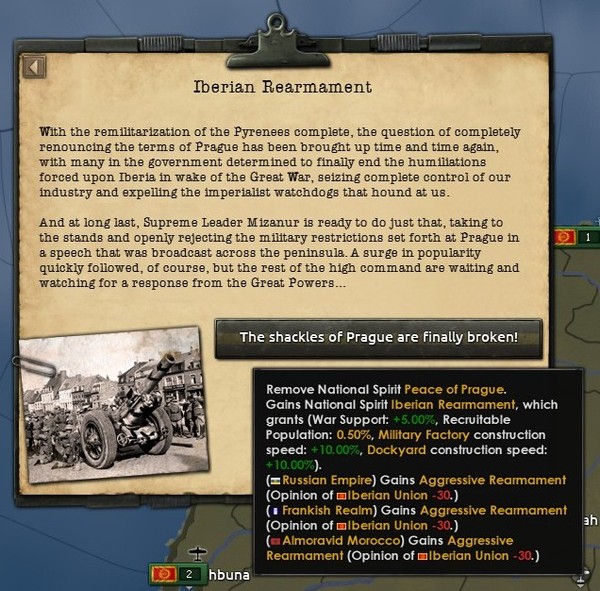
Al Andalus was ascendent, and she wasn’t alone, with the red star rising across the width of the world. In Germany, the now-famous Iberian Expeditionary Force pierced enemy lines in another stunning offensive, seizing Magdeburg and surrounding thousands of liberal fighters, before turning their guns eastwards and pushing towards Berlin.
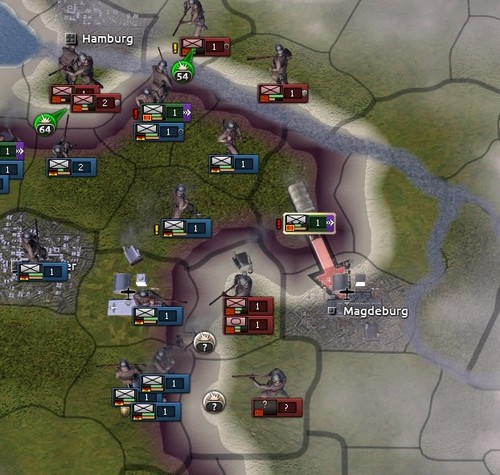
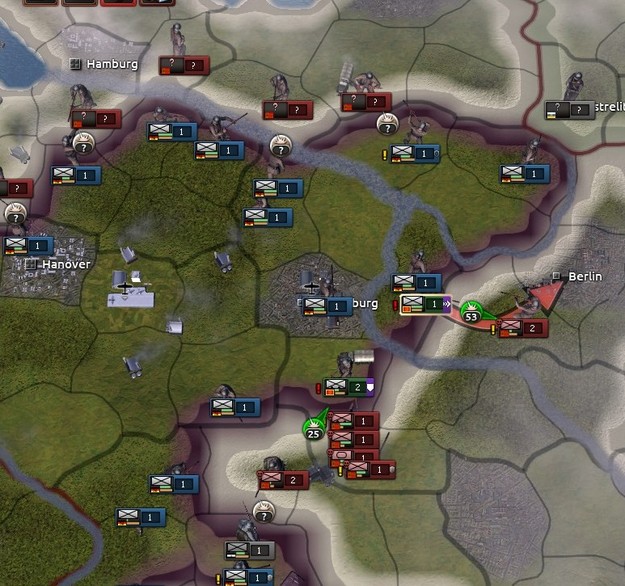
The German Republic was on its last legs, and to the south, the German Reich wasn’t faring much better. The monarchists had clashed with the fascists in a string of indecisive battles over the past few months, but their first undeniable victory finally arrived in the dying days of February, when a determined offensive culminated in the capture of München.
Unless one of the Great Powers intervened, it was starting to look like the fate of Germany rested between communists and monarchists.
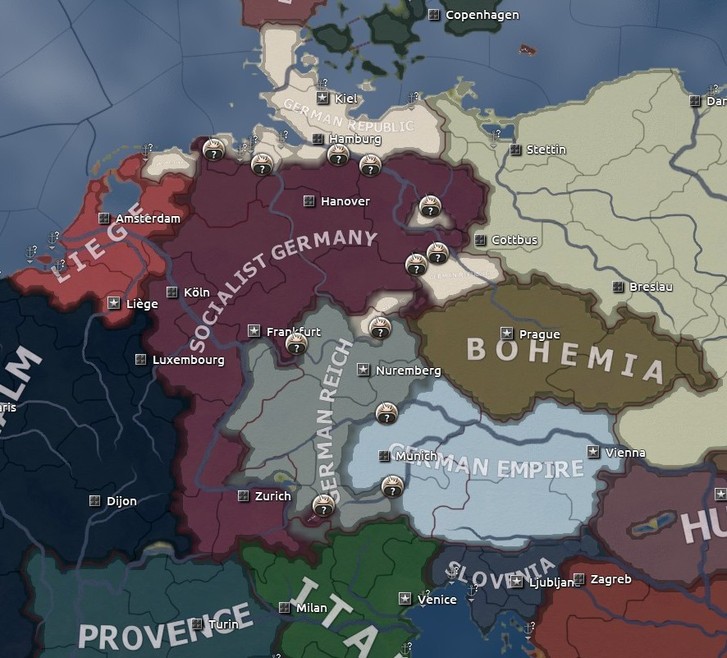
In Gharbia, the volunteer forces had managed to break the enemy encirclement and stabilise the front, which stretched across thousands of miles in rugged plain and mountainous desert.
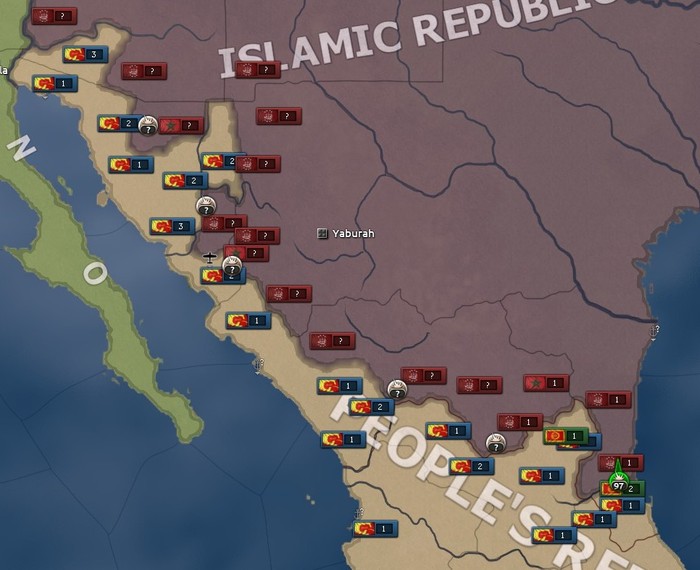
That state of affairs wouldn’t survive for long, however, as Moroccan volunteers managed to penetrate communist lines in another well-planned manoeuvre.
And there would be no relief this time, as the trapped soldiers were shelled and bombarded into gradually retreating, slowly starved into submission as their supplies dwindled, as their morale sapped, as their numbers grew fewer. By April, the battle of Ma’qal Hisham was all but over.
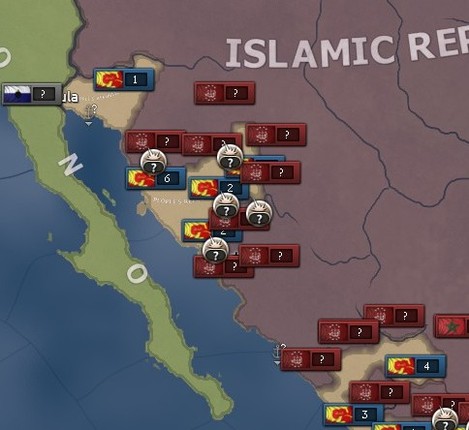
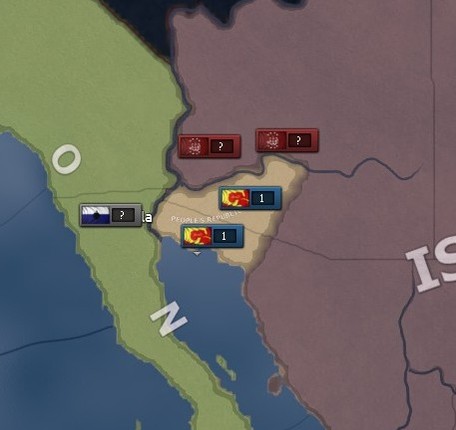
For some, this miserable defeat in the west was compensated with a remarkable victory in the east, where Balkan soldiers had stormed across Anatolia over the course of six months, triumphantly marching into Yerevan on the 8th of April, 1938.
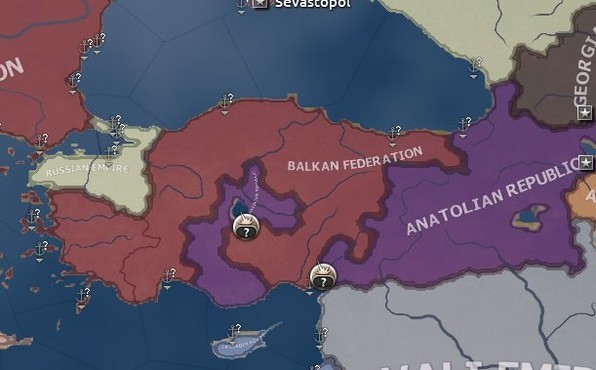
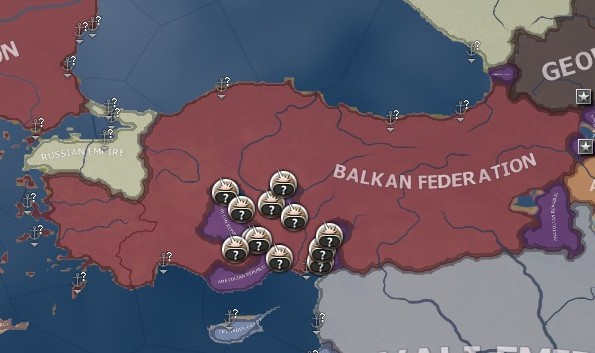
That same week, the military government of the Anatolian Republic formally surrendered to the Balkan Federation, which announced the immediate staging of plebiscites to determine whether the Anatolian populace was receptive to joining the Federation.
And the results were not surprising.
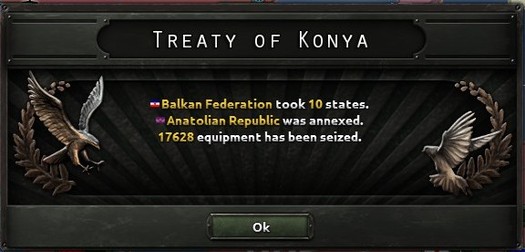
Of course, that meant that the Balkan Federation was no longer confined to the Balkans, so the Presidium of Belgrade convened later that month to adopt a more… inclusive name for their grand union. With no shortage of arrogance and conceit, the assembly eventually decided on the Union of Socialist Republics of Europe and Asia — ambitious, but so were they.
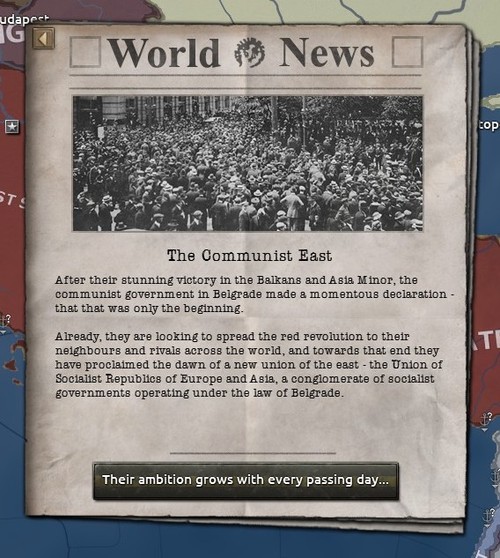
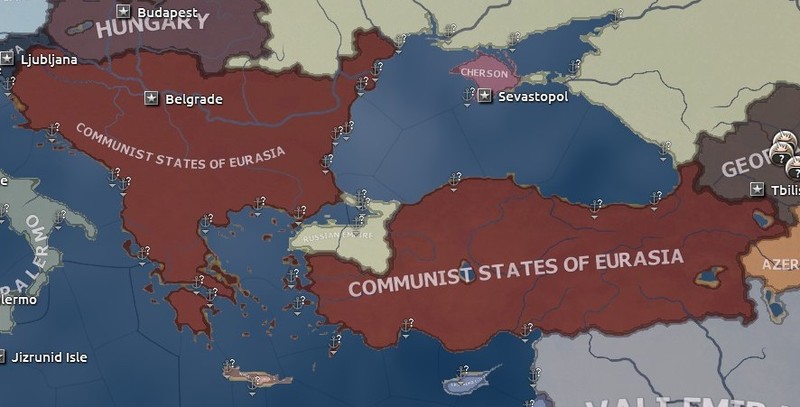
Belgrade had managed to subjugate Anatolia without any Great Powers intervening, but that wasn’t the extent of the consequences, with the declaration of the CSE thrusting the Near East into a state of chaos and confusion.
The Anatolian Republic and the Vakhtani Caliphate before it had always acted as a stabilising force in the Caucasus, settling disputes and maintaining peace between the bickering principalities. With the annexation of Anatolia, however, the order and tranquility gave way to mayhem and anarchy, with the Caucasian Wars erupting between the Caspian Republic, Georgia and Azerbaijan within mere weeks.
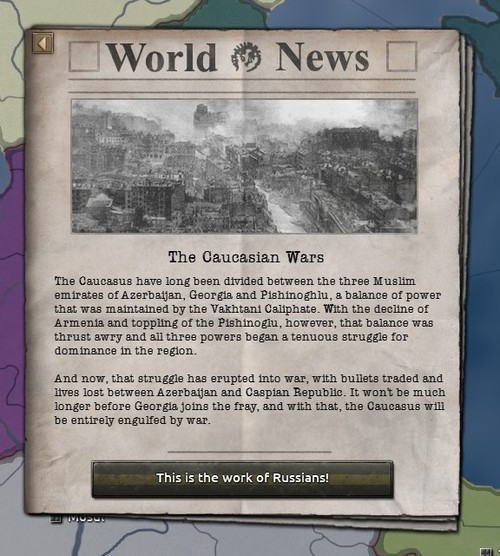
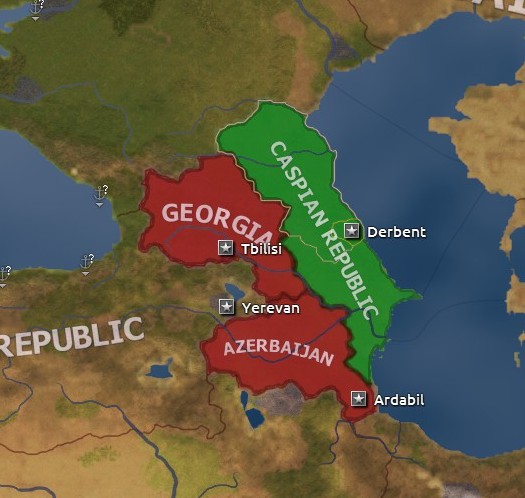
And to their immediate south, the Vali Emirate of Iraq and Syria had been waiting for the opportunity to launch their own expansion efforts, and wasted no time in launching a series of vicious raids across their border at Kuwait and Tabuk.
Bloody and costly, these raids reignited dormant tensions between Baghdad and Mecca, with war erupting between the two powers by early April.
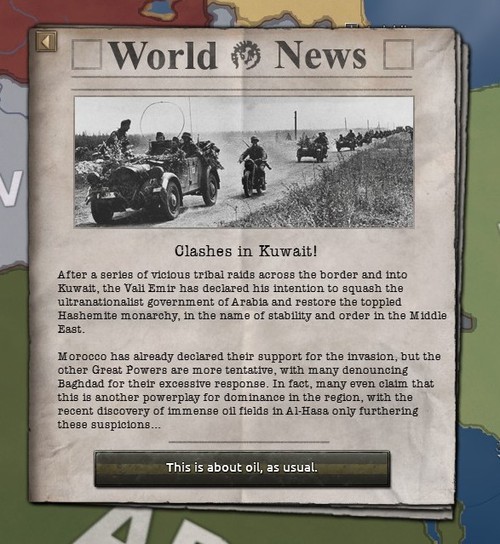
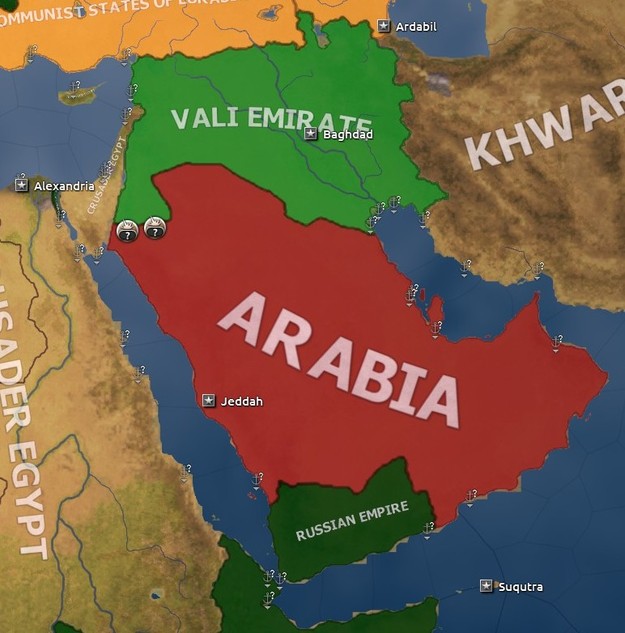
World tension was on the rise, but all of this would be overshadowed by events further west. On the last day of April, Jacques Vernier took to radios and televisions to deliver a momentous speech, with the Commandant of the Frankish Realm declaring that he would not stand by, meek and docile, whilst the cancer of communism was allowed to contaminate the rest of the world.
And with the once-ironclad Peace of Prague collapsing into a fetid wreckage, he would have to act.
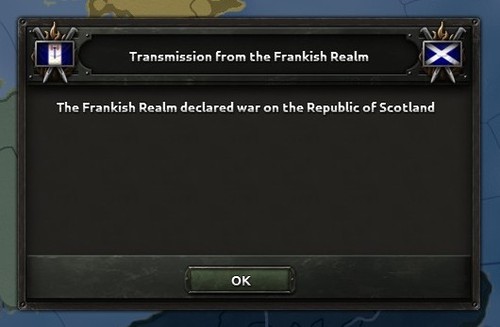
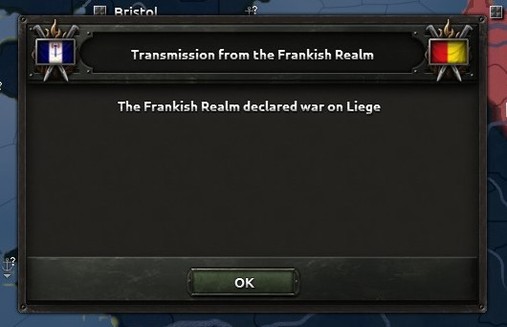
War was declared on Scotland and Liege, and though the rest of the Great Powers retaliated with an influx of volunteer forces, they wouldn’t be enough to falter the Frankish advance for very long.
This was only the beginning, and when Britain and Holland inevitably capitulated to Paris, the rest of the continent would surely follow.
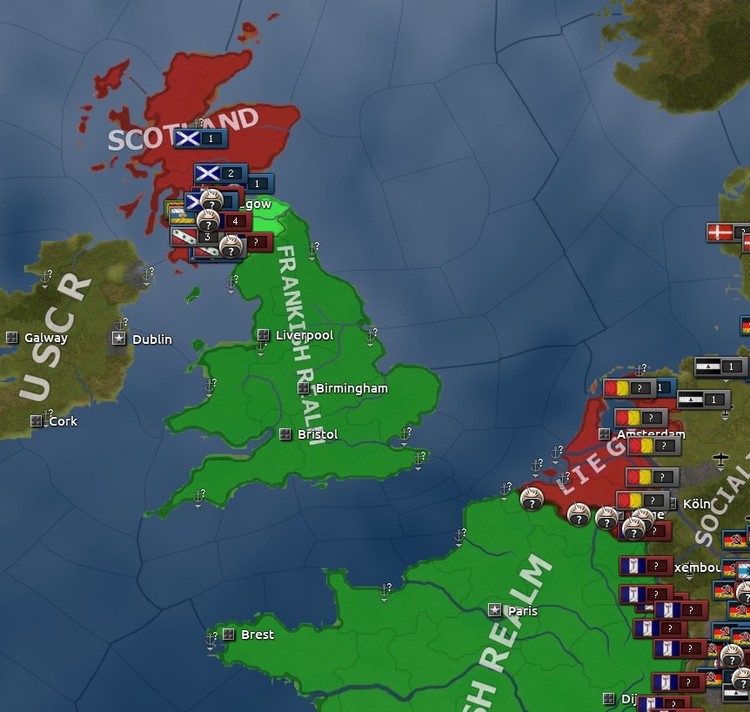
In Qadis, the rapidly-unfolding chain of events was seen as an opportunity, with Mizanur’s supporters loudly calling for Iberia to join the fray. The very face of the world would be reshaped over the next few months and years, and they were determined to play their part and claim the inheritance of the Iberian Union…
And that inheritance was invaluable, stretching from Gharbia to Jerusalem and Qantabriyya to Katanga, more vulnerable than ever. So after receiving authorisation from the Supreme Leader, a small clique of ambitious revolutionaries presented a bold venture to the Socialist Shura — the Pacification of the Kongo.
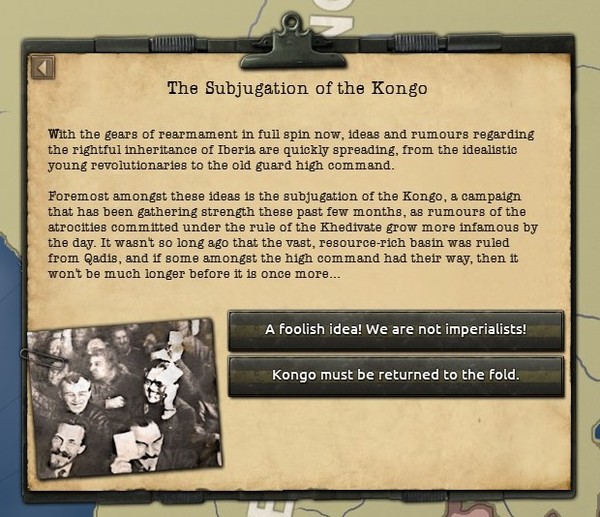
The Kongo had once been a colony of Al Andalus, albeit one with considerable autonomy and self-rule under their conquerors, only for the Min-al-Bita dynasty to seize independence as the Khedives of the Kongo. Now that the metropole was on the rise once more, perhaps the time has come to… liberate the natives suffering under the yoke of the Khedivate, and install a government more favourable to the interests of the people (and their liberators, of course).
Should we turn our guns on the Kongo, whilst the rest of the world gradually slides towards bloodshed and carnage?
